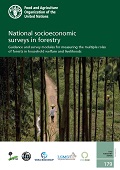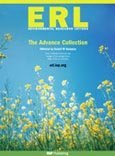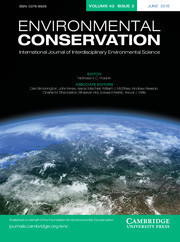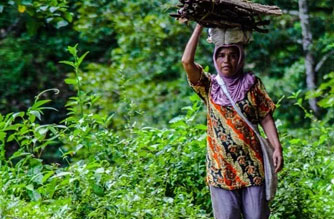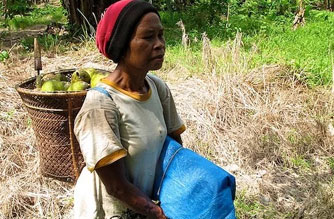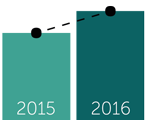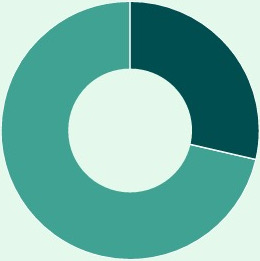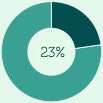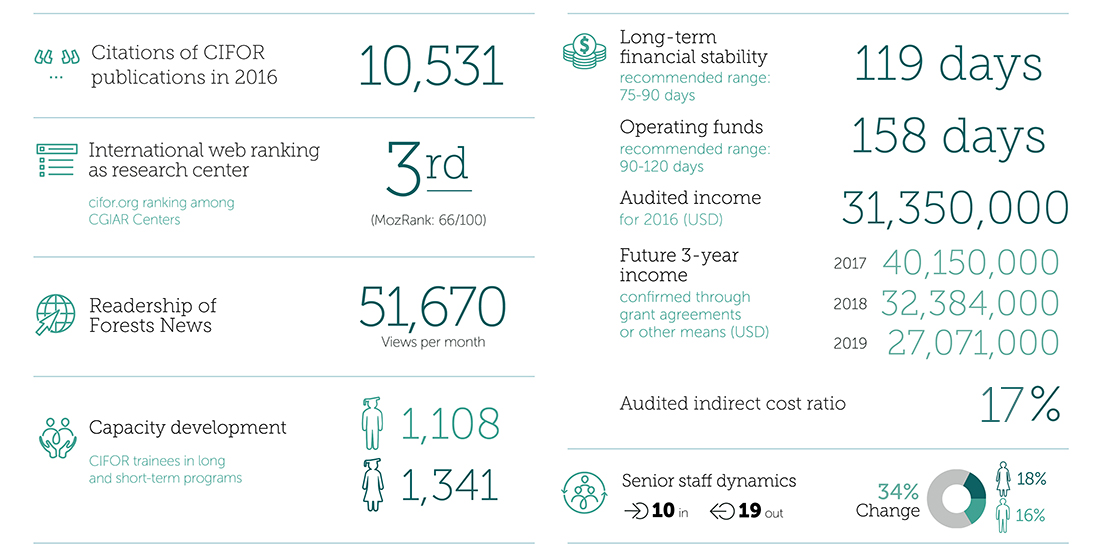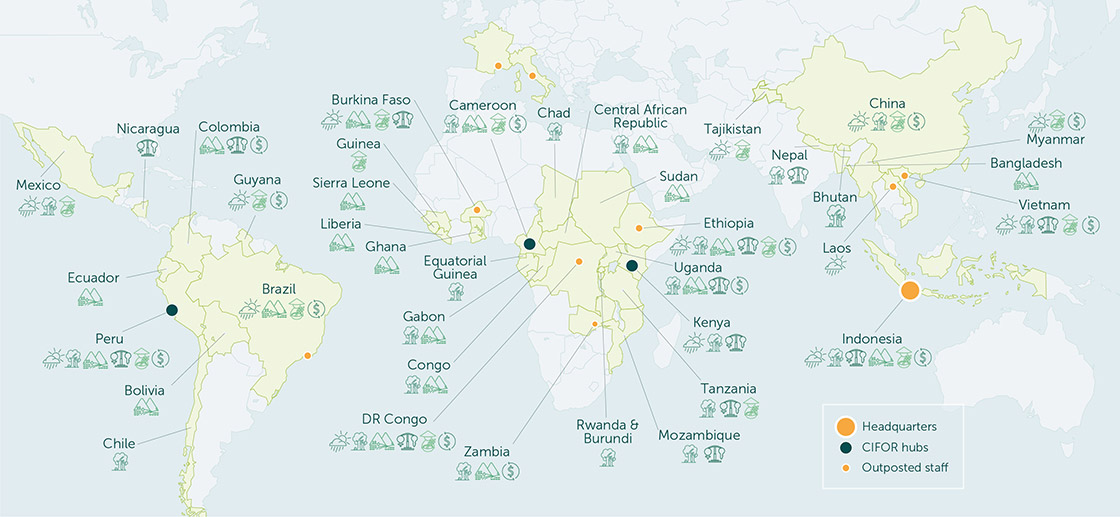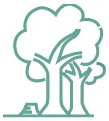
Capturing the true value of forests for people
New sourcebook gives countries a better way to measure the role of forests in rural livelihoods
Fuelwood, timber, bushmeat and plants make up a large share of the income of millions of families. But until recently, the scope of this income was invisible to policy makers trying to find solutions to rural poverty or conservation problems.
Now, countries are armed with a new sourcebook and forestry module – based to a large extent on CIFOR research methods – to guide their national household surveys.
CIFOR’s Poverty Environment Network (PEN) has helped dispel long-held beliefs about forest incomes through its global database, the world’s largest analysis of tropical forests and rural livelihoods. PEN household surveys in 24 tropical countries revealed how important forest resources are to millions of rural families across the tropics – and how much national poverty surveys have underestimated the importance of forests and trees to people’s incomes.
From 8,000 households… to 8 million
The World Bank’s Living Standard Measurement Study Surveys (LSMS) are designed to help statistical offices in developing countries collect better household data to feed into national policies.
To apply the lessons from PEN at the national level, CIFOR worked with the Food and Agriculture Organization of the United Nations (FAO), the International Forestry Resources and Institutions (IFRI), the World Bank and the Program on Forests (PROFOR) to create a forestry module and sourcebook aimed at strengthening forestry statistics in the LSMS and other national surveys.
The final sourcebook was launched at the FAO in October 2016, and CIFOR also held PEN-based events at IUCN’s World Conservation Congress to discuss the new methods and promote the new tool.
The sourcebook is the most visible output of this work, but the biggest outcome is the partnership that has evolved over several years. Now, we need move beyond this collaboration between like-minded individuals and build a strong institutional foundation that will continue this work.
Gero Carletto, Manager of the Center for Development Data and the Living Standards Measurement Study (LSMS) at the World Bank
Sourcebook
In the field
Prior to its launch, the forestry module and sourcebook were field-tested in Indonesia and Tanzania, with promising results. Based on the findings, researchers tweaked the module before its launch.
Improving agricultural statistics, including forestry and hunting, will help determine the root causes of poverty in the developing world and will lead to achieving Sustainable Development Goal 1: Zero poverty by 2030.
Albina Chuwa, Director General, National Bureau of Statistics of Tanzania, where the module was pilot tested in 188 households
Feeding into forest policy
The modules are being piloted at country level in Argentina, Armenia and Georgia, and at the project scale in Mozambique. Turkey, with the support of PROFOR, used a modified version of the draft Forestry Module for a national survey, and is currently analyzing the results. These will be summed up in a Forest Policy Note for use by the Directorate General of Forestry in its next Five-year Forest Sector Strategy. Researchers are using the survey to investigate whether forests represent a pathway out of poverty, to gain a better understanding of what is driving out-migration.
Gender surprise
Think that women are the main foragers for wood, fodder and plants? Think again. A gender analysis of PEN data dispelled widely held claims.
Presentation: Women, men and the management of forests and landscapes
PEN is an international coordinated research effort on poverty, environment and forest resources.
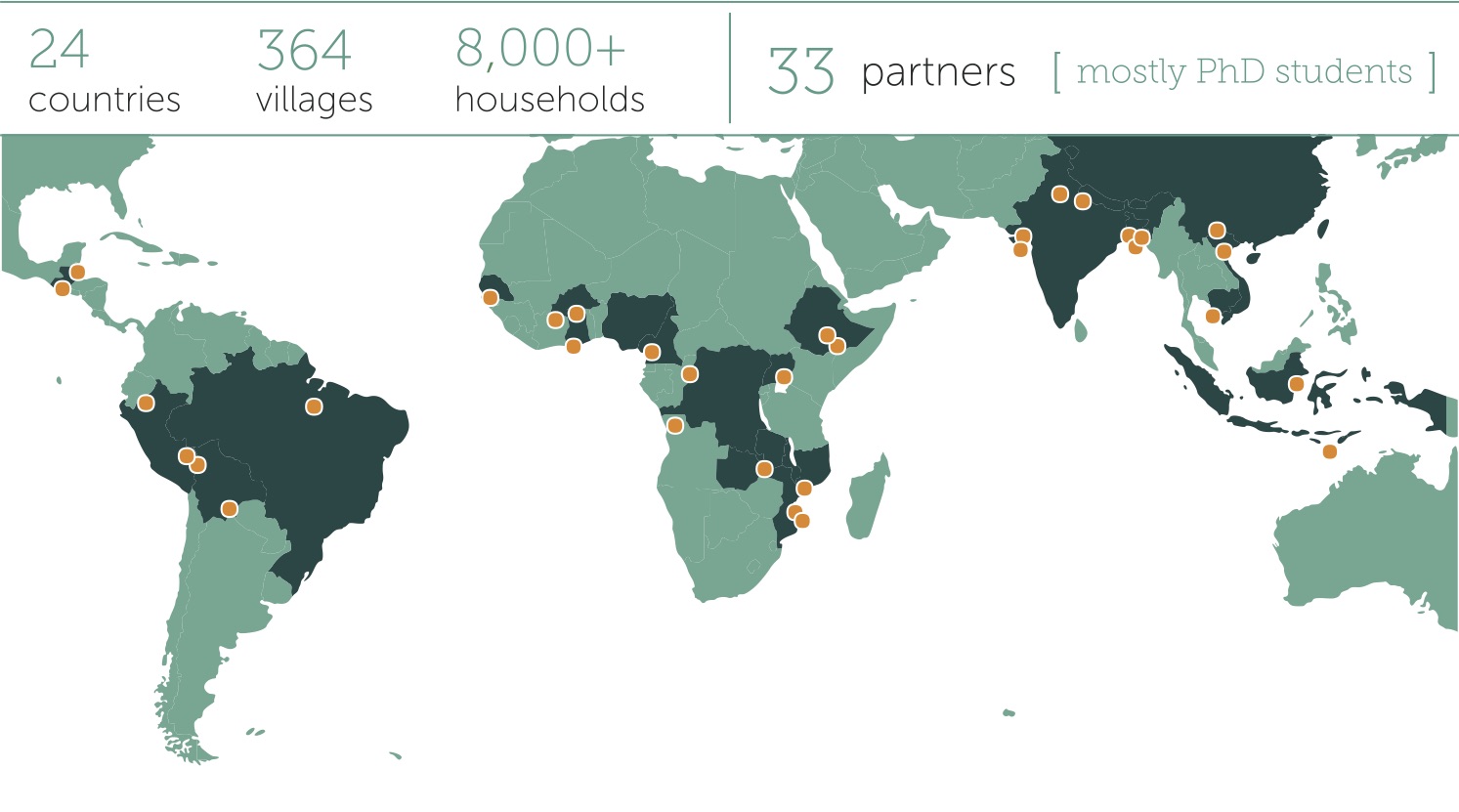
Photo by O. Girard/CIFOR.




